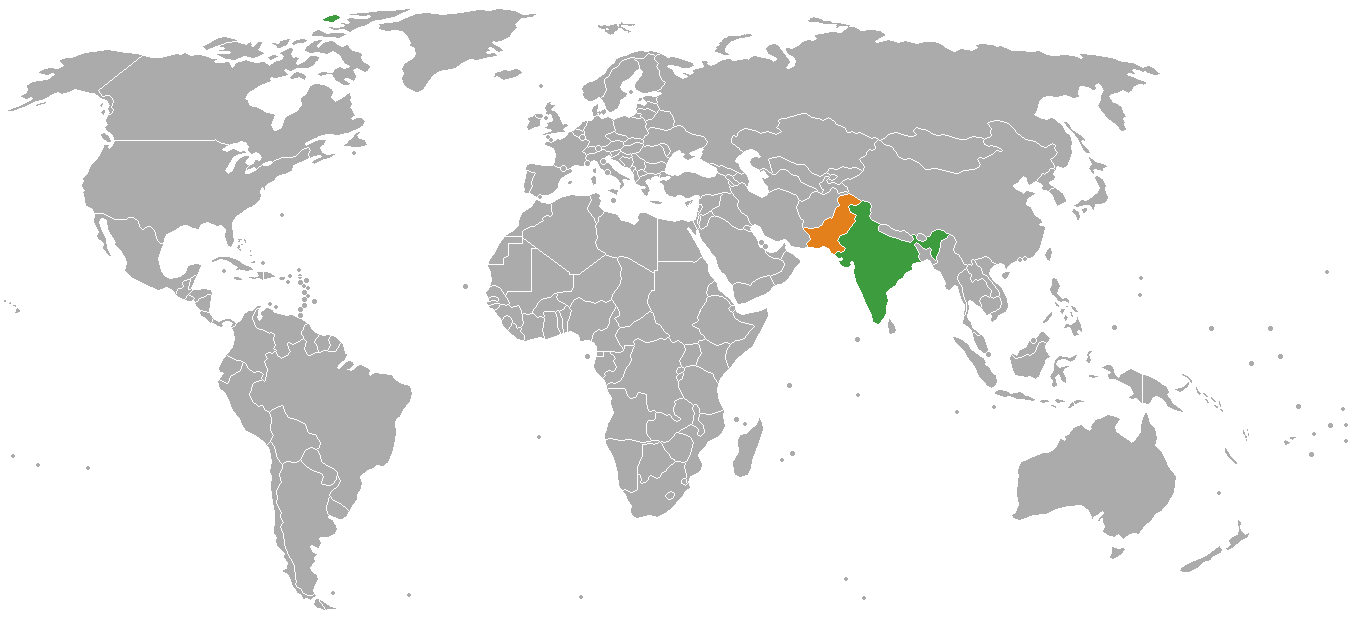In an age when many people get their news from social media, the competition for public sentiment has become fierce. It seems no part of the world is spared, and no topic is too big for the general public to circulate relatively uninformed opinions on. In the case of the Pakistan vs India war, two nuclear-armed rivals face off in a decades-long battle for public opinion.
As the amped-up tensions of last week begin to ease, it’s now worth asking which country won the battle for public opinion.
Pakistan vs India war: Just the facts
It’s been very clear over the last week or so that the Pakistan vs India war has taken to the airwaves in a new front: public relations. Both countries have connections with the news outlets in their own countries, so it’s important to read all reports from both sides with a healthy dose of caution—and a preference for news reports from other countries.
We do know that the militant group Jaish e-Mohammad (JeM) claimed responsibility for a deadly attack on an Indian paramilitary police convoy in Indian-controlled Kashmir on Feb. 14, killing at least 40 people. We also know that India has largely blamed Pakistan for the attack, although Pakistan denies any connection with the group that carried it out.
We also know that India claimed to have bombed a militant camp in Pakistan last week, killing 300 militants. However, New Delhi offered no actual evidence of the attack, while Islamabad showed evidence that the Indian Air Force actually bombed an empty field, leaving no casualties behind.
We also know the Pakistan vs India war took to the skies over the disputed Kashmir region last week. Pakistan’s air force shot down an Indian jet and captured the pilot. Islamabad returned the pilot to India as part of an agreement to de-escalate the situation.
A public relations battle
From an outsider’s perspective, it rather looks like India may have taken the first shot in the public relations battle with Pakistan. Multiple analysts have pointed out that Indian Prime Minister Narendra Modi may have been trying to use the story about the bombing of a militant camp in Pakistan as a publicity stunt to convince Indian citizens that he has been actively protecting them.
India is preparing to hold its next elections in a number of weeks, so the nation’s officials may feel pressured to tell a good story about what they’ve been doing lately. However, Islamabad was quick to unmask the situation by showing evidence that the incident probably didn’t happen the way Indian officials would like their citizens to believe. Pakistan’s move left New Delhi scrambling to offer an explanation and defend the story it told.
In a show of support for Pakistan, the Organisation of Islamic Cooperation (OIC) officially condemned what it described as India’s “state-sponsored” terrorism, according to Dunya News. The international organization issued a resolution on the Pakistan vs India war this week. The OIC continues to see the dispute over the Kashmir region as the core issue in the two nation’s relationship and views a resolution to the problem as a key component for peace in the region.
Pakistan also struck another blow against India in the public relations battle through this week’s OIC meeting. The Foreign Office said in a statement that the OIC resolution also welcomes Pakistani Prime Minister Imran Khan’s “renewed offer of dialogue to India.” Additional events and statements demonstrate Khan’s desire to be painted as a leader whose goal in the Kashmir dispute is peace.
An uneasy partnership?
It’s beginning to look like tensions are easy slightly in the Pakistan vs India war. According to Reuters, the two nations resumed their barter trades in the contested Kashmir region on Tuesday, although the fighting between Indian military forces and separatists continues.
There’s also a tiny glimmer of hope that Pakistan and India might be able to work together as good neighbors should. According to multiple news outlets, Islamabad announced that it has detained 44 members of banned Islamist militant groups. Some of those who have been detained were listed in a dossier New Delhi delivered to Islamabad following the deadly bombing last month.
Among the detained are a brother and son of JeM leader Masood Azhar, who were “taken into protective custody,” Pakistan’s Interior Ministry said. Pakistani officials said in a statement that they had “decided to speed up action against all proscribed organisations.”
A former military officer told The Telegraph that he believed the crackdown this time around would be serious. If he’s correct, Pakistan will have to convince Western nations of its intents, given that officials have thought previous crackdowns were done only for show. Khan’s government is also taking further steps to secure peace in the region. According to Reuters, Islamabad plans to send a delegation to New Delhi next week to talk about an accord for Sikh pilgrims journeying to holy sites within Pakistan.
On the surface, it’s sounding like the Pakistan vs India war is calming down, but history has demonstrated that the status of this difficult relationship can change at just a moment’s notice.




